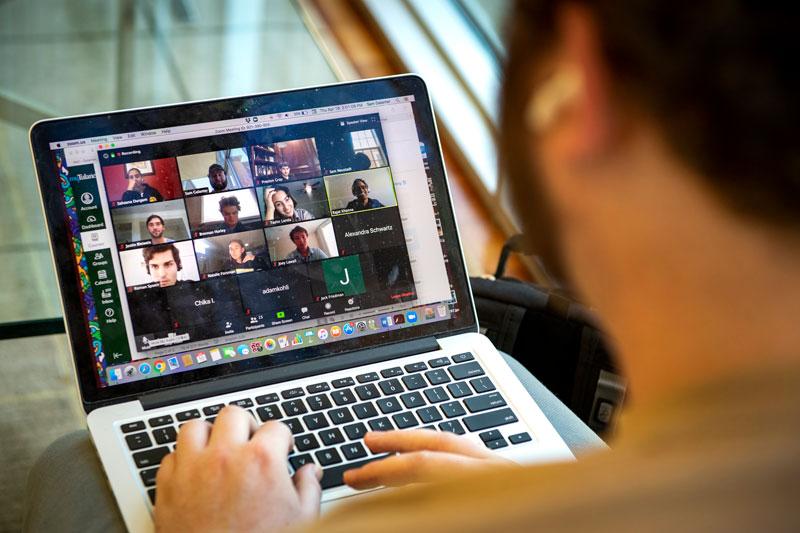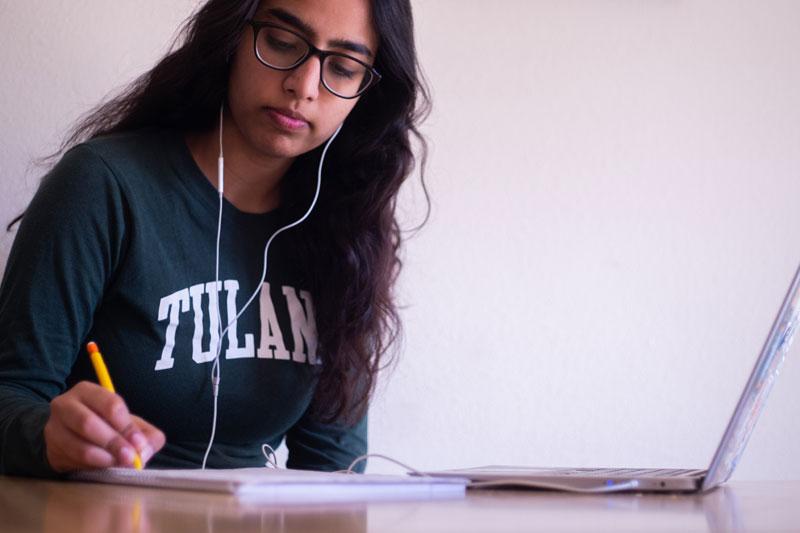Tulane students zoom in to reconnect
It wasn’t exactly planned. But the university was already preparing for an emergency transition to online classes even before the COVID-19 crisis. Senior Vice President for Academic Affairs and Provost Robin Forman, however, was preparing for the possibility of a hurricane evacuation, not a pandemic.
Tulane faculty and students have responded “brilliantly” to the current crisis, said Forman, and the university’s transition to temporarily conducting all classes in a virtual format has been “very successful, with many faculty and students reporting that the experience is much better than they had ever expected.”
The transition to remote learning had a powerful emotional element as well, said Forman, with students unexpectedly having to quickly say goodbye to friends as most returned home a few weeks ago, but “several have told us how much they appreciate the chance to reconnect with classmates and professors” in Zoom video conferencing classes and digital chats.
“Even though I would prefer to spend my last semester at Tulane around my friends and professors, I know that that is not possible. Zoom has been the next best thing.”
Ishanya Narang, School of Liberal Arts student
While everyone misses the “on ground” interactions of in-person classes, the remote connection does allow for real, meaningful engagement, he said.
Ishanya Narang, a communication major and president of the School of Liberal Arts Government, is graduating in May. “Zoom has definitely been helpful in this time of adversity,” she said. “Even though I would prefer to spend my last semester at Tulane around my friends and professors, I know that that is not possible. Zoom has been the next best thing. I enjoy doing synchronous Zoom classes because it provides the ability to participate in face-to-face interactions even if they’re not in-person.”
To take some of the stress out of the situation, Tulane is changing its grading policy for this semester. Students have the option of receiving a Pass, Marginally Pass or Unsatisfactory mark, rather than the traditional letter grade. But they don’t have to make that decision until they find out the letter grade they’ve earned after exams are over and final papers turned in.
“Rather than having students designate a course to be pass/fail now, and then perhaps to moderate their effort in those classes, we want students to work as hard as possible in every class, through the end of the semester and finals, and then to have the modified pass/fail option if, because of the current circumstances, the results did not reflect their effort and commitment,” said Forman. He believes this policy will help maximize students’ learning during this time of anxiety and uncertainty.
Lee Skinner, dean of Newcomb-Tulane College, led a digital Town Hall, sponsored by Undergraduate Student Government, on April 2.
“We are here in this remote world and are eager to connect with you,” said Skinner.
The call-in included academic advisers and deans, who fielded questions about grades and access to classes via sometimes spotty internet connections that some students are encountering at home. The advisers urged students to reach out directly to professors for assistance as the faculty themselves learn this new way of teaching.
Vicki Mayer, associate dean of academic initiatives and curriculum for the School of Liberal Arts and professor of communication, advised students not to be too hard on themselves and to take the long view. “Facing adversity is more important than a letter grade,” Mayer said.
By the way, for students or faculty looking to jazz up their Zoom backgrounds, Tulane-themed backgrounds are available. To view the backgrounds, click here. For instructions on how to use the backgrounds in Zoom, click here.


